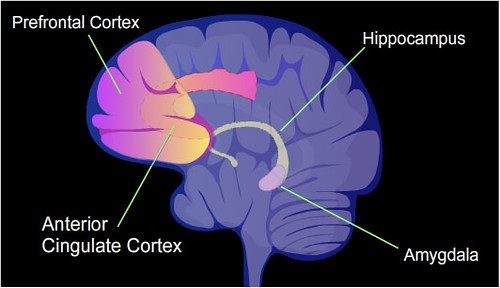Psychology: About lying
I recently listened to an older lecture by Prof. Dr. Jordan Peterson where he talked about the necessity of being an honest person. In his familiar way, he elaborated with many examples and a clear message: You betray yourself when you are not honest. Despite Peterson being a controversial psychotherapist and author, this allowed me to reflect more on a topic which I think is very important.
In many philosophies and religions around the world one finds the concept of "not lying". Stoicism is one of these. But why? To keep the population down, ensure peace and order and make it easier to judge someone? At least it creates a bad conscience that there is someone up there counting all of your mistakes to keep them against you. Then you are supposed to show remorse just to fall back on the same track?
If you follow children's upbringing, you experience that young children are very honest. If you ask, you get a straight foreward and honest answer, and if you do not ask, well, you get it too. But at some point, the truth gets a little bent, or a lot. And it makes sense: Why should I say something that is unpleasant, that has negative consequences for me when I can avoid it? A good feeling now instead of consequences later? Maybe just be a little creative and taste the feeling of it?
And as they get older and their cognitive ability increases, so does the realization that this is not right. But then there are truths that are difficult to admit. It hurts to say things that you know will be painful to those you love. You want to protect others or yourself. A white lie is born.
Most people have a moral compass that indicates what is right or wrong. However, if you change the truth to a greater or lesser degree, you will lose the ability to make clear judgments, lose your original path and consequently lose yourself. Too many contradictory experiences cause the brain to short-circuit in relation to a logical and sensible train of thought. You can no longer set events against each other and evaluate them against the truth you have inside you. That's why Peterson calls it a deception against yourself.
Things work in everyday life because most people are never confronted with a "different" truth. If events go out of the ordinary and " it works out ", then survivorship bias strikes , if things do not go so well, we know about processes called normalcy bias. This is also one of the reasons why people remain in bad conditions and the same process brought down Boeing's 737 Max in a catastrophic way that led to to financial losses of over $ 26 billion in market value in early 2019. *
Some of my courses are designed to stretch boundaries and if you are like me, you like to test and challenge yourself. I have experienced the phenomenon Peterson talks about in some course participants: They are successful, seem confident in themselves, offer themselves. Everything seems to be going well. If someone presses the right buttons, they get wet, tired and a little exhausted, it hurts a little, then the facade falls. Should they then also take care for others in addition to themselves, it suddenly becomes too much. The abilities they thought were there are not. The result can be withdrawal. Why take responsibility when there is something wrong with everyone else? Some, and especially those who are highly competitive, prefer to flee forward: Counter-attacks, to become verbally outspoken. Why should one find oneself in such a situation? One has then given enough, etc.
Many "coaches" recommend "fake it until you make it", and to bite your teeth together.
Only in the evening, when you sit around the campfire, have been nourished and can relax, do your thoughts come to mind. If reflection is based on being grateful, then you are well on your way. Where did I go wrong, where did I fool myself? What can I do to get better?
But I will not point the finger at everyone else. I myself have lived with absolutes and truths for many years that proved to be a self-deception. The awakening was hard and brutal. Had I really listened inwardly, I would have acknowledged much before that, nope , what you "believe" is not the truth! You live a lie. The process is demanding and associated with temporary losses. Loss of dreams, people who are important and not least time. And this hurts. Brain research shows that in such settings the same brain centers fire (Thalamus and anterior cingulate cortex) as in physical pain ( Meerwijk et al, 2013)!

So why have it painful when you can apparently live an OK life? My realization is that because time goes by, and that time we never get back. It first appears down the line what or in whom we have invested it in. For some, the realization comes late and some live with their lies all their lives.
But there is hope. Dare to be honest with yourself is the first step. And then really find out what you want. "What you want is not necessarily what you need", it says. And to throw another saying after, we know that only drunks and children tell the truth. Maybe because they have nothing to lose? Well, by lying, we have everything to lose, namely ourselves.
Peterson concludes with a statement that honesty is crucial to a successful life. I very much agree with that and will continue to work on it to become the best version of myself.
Will you join?
* For those who want to read more about it, I recommend this study: Omer, H., Alon, N. The continuity principle: A unified approach to disaster and trauma. Am J Commun Psychol 22, 273–287 (1994). https://doi.org/10.1007/BF02506866
Back


All comments are moderated before being published. Your email will not be visible